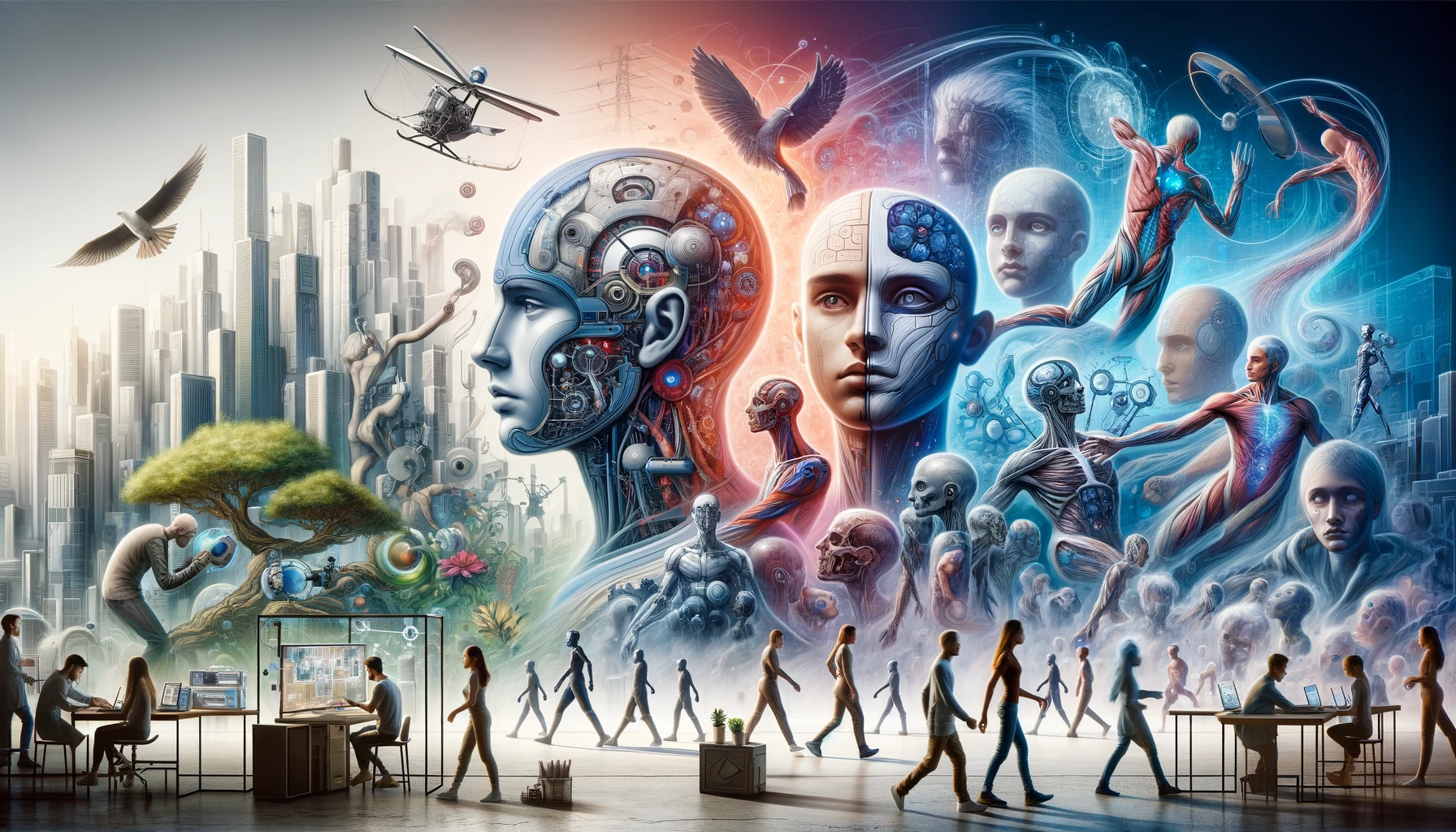What Remains of Us?
Abstract
This paper investigates the merging of technology with human life, highlighting how this union transforms what it means to be human. It examines the shift from our natural state to enhanced conditions enabled by technological progress. The focus is on the significant alterations in our physical bodies, mental capacities, and how we interact within society. We address the ethical, social, and philosophical challenges this integration presents, especially regarding identity and the future direction of our species. By examining various disciplines, we discuss the advancements that allow for improved human functions and the emergence of new digital life forms. This analysis aims to identify what aspects of our humanity will persist as we become more intertwined with technology, suggesting a future where these innovations augment our abilities and deepen our sense of community and belonging. By exploring the trajectory of human-technology integration, we offer insights into managing these transitions to enhance human well-being and ensure a more inclusive and fair world.
Introduction
The intersection of human existence with advanced technology is a pivotal moment in the history of humankind, heralding an era of bio-technological advancement poised to redefine the very essence of life, intelligence, and identity. Throughout history, technological innovations have played a critical role in the evolution of human society, from the crafting of primitive tools to the advent of agriculture, the industrial revolution, and the information age. Today, we stand on the threshold
of a new frontier: the unprecedented integration of technology with the human body and mind, challenging our preconceived notions of being human. This profound integration is driven by a confluence of motivations, including the enhancement of human capabilities, the remediation of medical impairments, and the ambitious aspiration to transcend the inherent limitations of our biological nature. Groundbreaking advancements in fields such as prosthetics, neural interfaces, and genetic
engineering are blurring the once-clear demarcation between the organic and the artificial, offering a glimpse into a future where technology is intricately woven into the fabric of the human condition.
At the core of our exploration are key concepts that encapsulate the breadth and depth of this integration: bio-technological fusion, representing the seamless amalgamation of biological and technological elements; cyborgs, beings that embody the fusion of organic and biomechatronic parts; and digital consciousness, a speculative vision of human minds operating within digital or non-physical environments. These notions provide the foundational framework for examining the current landscape of human-technology integration and its myriad potential trajectories. This paper endeavors to navigate the complex journey of this integration, tracing the evolution from the augmentation of human faculties with technological devices to the speculative horizons where humanity may transcend its physical constraints entirely. Through a comprehensive examination of the technological breakthroughs, ethical dilemmas, and philosophical questions accompanying this journey, we aim to elucidate the multifaceted implications of this integration. Our goal is to offer a panoramic view of the future that looms on the horizon, where the definition of humanity is continually reimagined in the context of relentless technological advancement. In doing so, we invite contemplation of what remains of us when technology becomes not merely a tool but a fundamental aspect of our being.
The full publication can be read here:
Keywords: Human-Technology Integration, Biomedical Engineering, Digital Consciousness, Ethical Implications of Technology, Future of Human Identity

